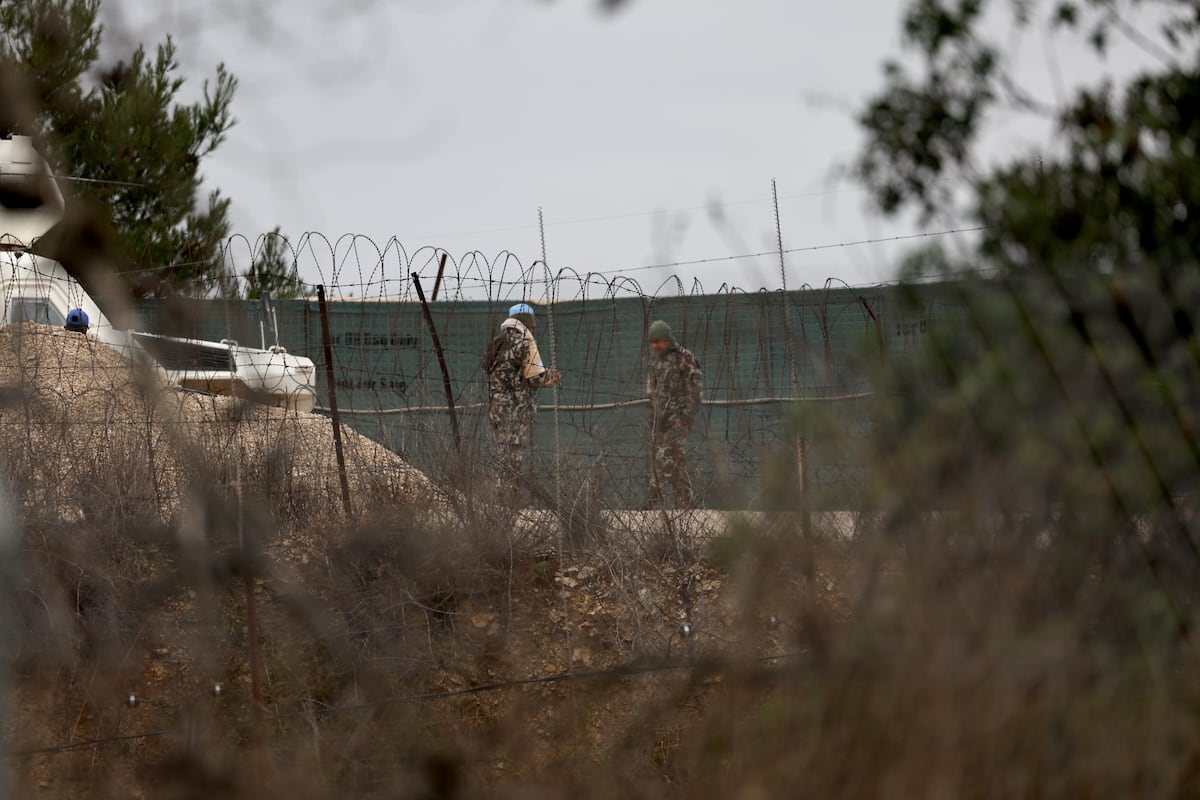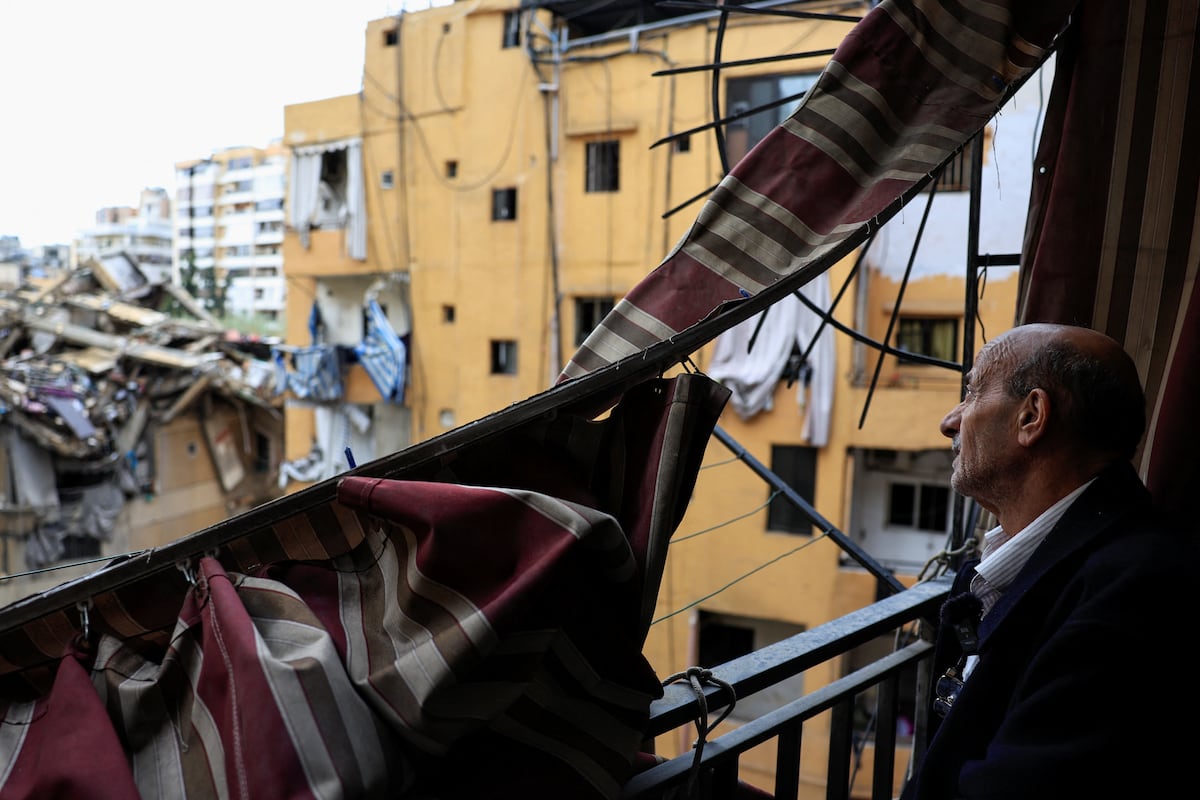Spain advocates reinforcing the mandate of the UN mission in southern Lebanon (Unifil, for its acronym in English), led by Spanish General Aroldo Lázaro, to consolidate the ceasefire between Israel and the Shiite militia Hezbollah that entered into force this Wednesday, according to sources from the Ministry of Defense. The two months of cessation of hostilities provided for in the pact, until the end of next January, should be used to give Unifil a more powerful and proactive mandate, since until now the 10,000 blue helmets deployed in the area can only act as auxiliaries to the Lebanese Armed Forces (LAF), which usually avoid any operation that could bother Hezbollah, so they have to limit themselves to taking note of ceasefire violations.
In a debate on Lebanon held in the European Parliament on October 8, the current high representative of the EU for Foreign Policy, Josep Borrell, already defended the need to “give Unifil a stronger mandate to ensure peace in the border” with Israel. “If the United Nations forces are not reinforced, it will be very difficult to restructure the region and prevent Lebanon from becoming a new Gaza,” Borrell warned.
According to the sources consulted, this reinforcement should involve modifying UN Security Council Resolution 1701 itself, so that Unifil can act on its own initiative when it has news of the presence of weapons or armed militias south of the Litani River outside of the Lebanese Armed Forces themselves—that is, the presence of Hezbollah—and not be limited as until now to intervening only at the request of the Lebanese Government. However, the same sources emphasize that the consolidation of the ceasefire also requires the definitive drawing of the land border between Lebanon and Israel, which remains disputed in areas such as the Shebaa farms, which should not be impossible after Both countries, despite the absence of diplomatic relations, agreed to establish their maritime borders to share the gas fields.
The Spanish Government has welcomed the ceasefire in Lebanon and has requested, through a statement from the Ministry of Foreign Affairs, its extension to Gaza, where Israeli attacks have continued for almost 14 months and have already caused more than 44,000 dead. According to military sources, the cessation of hostilities in southern Lebanon will allow the 650 Spanish soldiers to leave the shelters where they have spent much of their time during the last two months and recover surveillance patrols along the Blue Line (blue line), that makes a border de facto with Israel. This task will now be joined by those of protecting the return of the civilian population that evacuated the area when the Israeli ground offensive began, supporting the planned deployment of 5,000 Lebanese soldiers in the south and supervising the withdrawal of Israeli troops; as well as proceed to locate and neutralize mines, projectiles and unexploded munitions and provide security for the distribution of humanitarian aid and essential reconstruction tasks.
Defense sources emphasize that the ceasefire agreement would not have been possible if Unifil had abandoned its positions on the Blue Line, as demanded by the Israeli Prime Minister, Benjamin Netanyahu, and rejected by the general in charge of the mission, the Spanish Aroldo. Lázaro, with the support of the UN Secretary General, António Guterres, despite the fact that several blue helmet posts were attacked by the Israeli Army, leaving nine injured. In fact, the only country that has withdrawn its troops from the mission has been Argentina, which had three officers in Lebanon and whose president, Javier Milei, has unconditionally aligned himself with Netanyahu.
The Spanish Army has just completed the relief of its contingent in Lebanon, where the Aragón Brigade, after more than six months in the area, has been replaced by the Guzmán el Bueno, based in Córdoba. The relay has been carried out without incident, although not without difficulties, as some roads have been destroyed by Israeli bombings, which has forced them to look for alternative routes.
In the new contingent, health care has been reinforced with a Role 2F field hospital staffed by 17 soldiers from the Health Corps, expanding stabilization, surgery, traumatology, intensive medicine, anesthesia and clinical analyst services, as well as diagnostic means. After Israel attacked two ambulances at the entrance to the Marjayún hospital in early October, killing seven nurses, the only hospital in the area closed its doors, prompting the Spanish contingent to offer its medical services to the population. civil. This gesture, according to military sources, has been highly appreciated by the residents of the area, many of them elderly, since the majority fled when the ground attack began and others, such as the mayor of Nabatiye, with whom the Spanish contingent maintained close collaboration. , have died in Israeli bombings.
At the farewell of the Aragón Brigade, on the 17th at the Torrejón de Ardoz base (Madrid), those responsible for Defense already warned their boss, General Fernando Ruiz Gómez, to be prepared to adapt to new rules midway through. of the mission. Taking on new responsibilities would give Unifil more prominence and make it more useful, but could also expose it more to retaliation, military experts warn.





